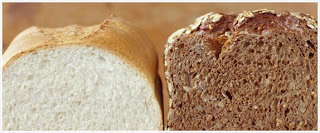
Is
fat good it really exist? We always have long been told to limit the amount of fat in our diet in order to keep cholesterol levels when examined. The fact is, we need a certain amount of fat in our diet. Fat helps us absorb essential vitamins like A, D, E and K.
Do you realize that there are actually various types of fat and of various types exist that have benefits for heart health benefits? Unsaturated fats, like monounsaturated and polyunsaturated fats, can have positive health benefits when consumed in sufficient quantities.
However, there is also a type of fat that has harmful effects your heart health. Those fats are saturated fats and trans fatty acids. Foods containing these fats should be consumed in small amounts. All the fat, however, is the center of the source of calories, so this may have a detrimental effect on your weight. Fat, in general, should be consumed in moderation. However. When choosing foods that contain fat, choose the type of fat that higher levels of monounsaturated fats and polyunsaturated fats. So, from where you can find good fats and bad fats is this?
Types of Fat
Saturated Fat
Monounsaturated fats are found in foods such as olive and canola oils, various types of nuts, avocados, peanut butter, and high-fat fish such as salmon and tuna. Polyunsaturated fats are found in
fish oils and types of corn, sunflower, cottonseed and soybean.
Monounsaturated fats and polyunsaturated fats can help lower LDL (bad) cholesterol when used as a substitute for saturated fats. They can also maintain or improve HDL (good) cholesterol levels.
Saturated Fat
Foods such as cheese, milk, ice cream, butter, cream (such as "sour cream"), red meat, pork, processed meats such as pepperoni, and coconut and palm oil all contain high saturated fats.
Your intake of these foods should be low. Instead, your consumption of saturated fats that come from this <10% of total calories per day. These fats can cause your blood cholesterol levels increase, thus increasing the risk of heart disease. The study also showed that saturated fats can increase the likelihood of certain forms of cancer, like prostate and colon cancer, according to the American Cancer Society.
Trans Fatty Acids
Trans fatty acids found in foods containing vegetable oils with partially hydrogenated techniques. The main sources of trans fatty acids in the diet of a person's most usual are margarine, butter cake, baked foods such as cakes, cookies, pastries and / or foods fried in partially hydrogenated oils.
Starting in 2006, labels on food are required to declare the amount of trans fat per serving.
Reduce Fat In Your Diet
Here are some tips from the Dietary Guidelines for Americans, in 2005 about how you can do to reduce your intake of saturated fat, trans fat and cholesterol:
Limit the use of solid fats, like butter, margarine, lard. Most of your fat consumption in this type of polyunsaturated fatty acids and fat as monounsaturated, such as those from fish, nuts and vegetable oils.
When choosing meat and poultry, and dairy products, choose a nonfat or low fat.
Eat plenty of whole grain products, vegetables, and fruits every day.
Read the Nutrition Facts Label to help choose foods low in fat, saturated fat, trans fat, and cholesterol.



